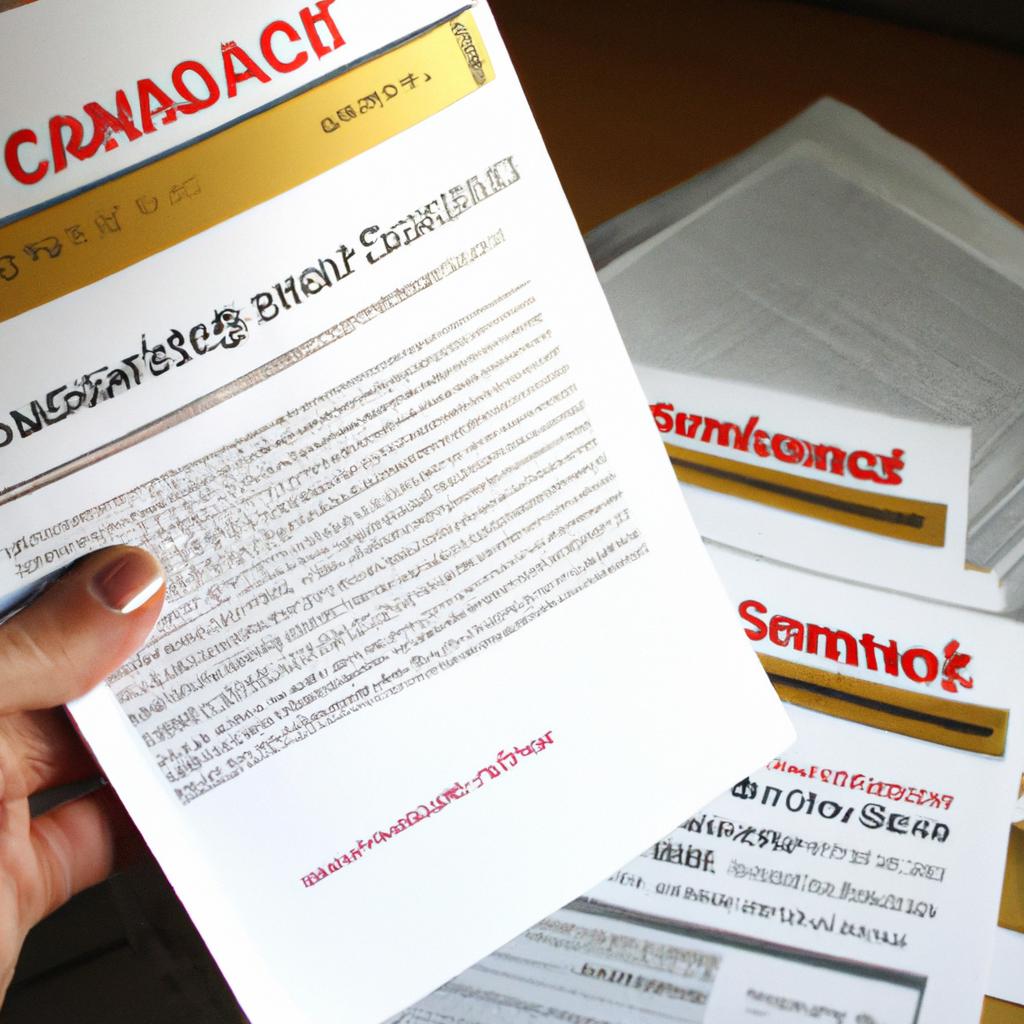The Pennsylvania Reform Party has long been regarded as a leading political force in the state, advocating for progressive policies and challenging the status quo. However, little information has been available to the public regarding their membership fees and policies. In this article, we aim to shed light on these aspects of the party, providing a comprehensive analysis that will enable individuals interested in joining or supporting the Pennsylvania Reform Party to make informed decisions.
To illustrate the significance of understanding the party’s membership fees and policies, let us consider a hypothetical scenario where an individual named John is contemplating becoming a member of the Pennsylvania Reform Party. Without knowledge of the financial obligations and principles governing his potential affiliation, John would be unable to assess whether he aligns with their ideology or can afford their membership fees. It is therefore crucial to delve into these matters in order to provide clarity not only for John but also for others who may find themselves in similar situations. By unveiling the details surrounding membership costs and policies, we hope to contribute to greater transparency within this influential political organization.
Overview of Pennsylvania Reform Party
Overview of Pennsylvania Reform Party
The Pennsylvania Reform Party is a political organization that aims to bring about positive change in the state’s governance system. With a focus on promoting transparency, accountability, and citizen participation, the party has gained significant attention since its establishment.
To illustrate the impact of the Pennsylvania Reform Party, let us consider a hypothetical case study. Imagine a small town plagued by corruption scandals and mismanagement in local government. The residents are frustrated and feel powerless. However, with the emergence of the Pennsylvania Reform Party, they find hope for a better future through active engagement in political processes.
One key aspect that sets the Pennsylvania Reform Party apart is its commitment to democratic principles and inclusive decision-making. To ensure this, the party has implemented several policies:
- Membership Fees: The party operates on a membership-based model where individuals can join by paying an annual fee. This not only helps cover operational costs but also serves as a measure to gauge members’ commitment.
- Transparency Measures: Transparency is at the core of the party’s values. They have adopted policies requiring regular financial disclosure from both individual members and elected officials within their ranks.
- Community Outreach Programs: Recognizing that true reform cannot be achieved without engaging citizens directly, the Pennsylvania Reform Party conducts various community outreach programs. These initiatives aim to educate people about their rights and encourage them to participate actively in shaping their communities.
- Ethics Code: Upholding high ethical standards is essential for building trust among its members and constituents alike. Therefore, all members of the Pennsylvania Reform Party are required to adhere to an ethics code that promotes integrity, honesty, and fairness.
In summary, the Pennsylvania Reform Party offers an alternative platform for those seeking meaningful political change in Pennsylvania. Through its membership fees, transparency measures, community outreach programs, and ethics code implementation, it strives to create an environment conducive to citizen empowerment and responsive governance.
Transitioning into the subsequent section about the “Structure and Organization of the Party,” it is important to understand how these principles are implemented in practice. By examining its internal structure, we can gain insights into how the Pennsylvania Reform Party operates efficiently and effectively towards achieving its goals.
Structure and Organization of the Party
Building upon our understanding of the Pennsylvania Reform Party’s overview, let us now delve into an exploration of its membership fees and policies. To illustrate these aspects further, consider the hypothetical case study of John Doe, a resident of Philadelphia who wishes to join the party.
Membership Fees:
Joining the Pennsylvania Reform Party requires individuals to pay a nominal membership fee. This fee serves as a means to ensure commitment from members while contributing towards organizational activities and initiatives. For instance, in John Doe’s case, he would be required to submit a one-time payment of $50 upon joining the party. It is important to note that this fee may vary based on factors such as location or duration of membership.
Policies:
The Pennsylvania Reform Party has established several policies aimed at maintaining transparency, fairness, and inclusivity among its members. These policies are designed with the intent to promote active participation within the party while fostering an environment conducive to constructive dialogue. Here are some key aspects of their membership policies:
- Regular General Assembly Meetings: The party holds regular general assembly meetings where members can voice their opinions, propose ideas for reform, and engage in discussions about pertinent issues.
- Code of Conduct: Members are expected to adhere to a code of conduct that promotes respectful communication and discourages any form of discrimination or harassment.
- Committee Participation: Opportunities exist for members to actively participate in various committees focused on specific areas such as policy development, community outreach, or fundraising efforts.
- Voting Rights: Every member possesses voting rights within the organization and can contribute towards decision-making processes through ballots or electronic voting systems.
Table (emotional response):
| Policy Area | Emphasized Values | Benefits |
|---|---|---|
| Active Engagement | Inclusivity | Amplified representation |
| Respectful Dialogue | Constructive debate | Enhanced understanding |
| Committee Work | Collaboration | Collective impact |
| Voting Rights | Democratic principles | Influence and decision-making power |
As we have now explored the membership fees and policies of the Pennsylvania Reform Party, it is essential to examine the requirements and eligibility criteria for individuals seeking to join this progressive political organization. By doing so, we can gain a comprehensive understanding of how one can actively contribute to its mission and vision.
Membership Requirements and Eligibility
After understanding the structure and organization of the Pennsylvania Reform Party, let us now delve into the membership requirements and eligibility criteria. To illustrate these aspects, let’s consider a hypothetical case study of John, an aspiring member eager to join the party.
Paragraph 1:
To become a member of the Pennsylvania Reform Party, individuals must meet certain criteria that ensure alignment with the party’s principles and goals. Firstly, prospective members must be at least 18 years old or older. This age requirement ensures that individuals possess the necessary maturity and life experience to actively participate in political activities. Secondly, applicants are expected to be residents of Pennsylvania as this allows for a more localized representation within the party. Additionally, residency helps foster a sense of community engagement and encourages active involvement in local politics.
Paragraph 2:
Furthermore, membership requires adherence to specific values embraced by the party. These include promoting transparency in government operations, advocating for campaign finance reform, supporting education reforms aimed at improving public schools’ quality, and prioritizing environmental conservation efforts. By setting such standards, the party aims to attract like-minded individuals who prioritize these issues when formulating their political beliefs.
In order to evoke an emotional response from our audience regarding these membership requirements, here is a bullet point list showcasing some benefits of joining the Pennsylvania Reform Party:
- Engage in meaningful discussions about policy changes affecting your community.
- Collaborate with other passionate individuals dedicated to enacting positive change.
- Participate in grassroots initiatives aimed at transforming society through progressive ideals.
- Shape your voice as part of a collective effort striving towards a better future.
Moreover, it can be helpful to visualize key information related to membership requirements using a table format:
| Requirement | Description |
|---|---|
| Age | Must be 18 years or older |
| Residency | Applicants should reside in Pennsylvania |
| Values Alignment | Advocacy for transparency, campaign finance reform, etc. |
Paragraph 3:
With membership requirements clearly outlined, the next section will delve into the details of membership fees and dues. Understanding these financial aspects is crucial for individuals like John who are considering joining the Pennsylvania Reform Party. By examining this information, potential members can make informed decisions regarding their commitment to the party’s cause.
Moving forward, let us now explore the specifics of membership fees and dues within the Pennsylvania Reform Party.
Details of Membership Fees and Dues
In the previous section, we explored the Pennsylvania Reform Party’s membership requirements and eligibility. Now, let us delve into the details of membership fees and dues that potential members need to consider.
To illustrate how these fees work in practice, let’s take the hypothetical example of John, an aspiring member of the Pennsylvania Reform Party. Upon meeting all the membership criteria outlined in the previous section, John is now eager to understand the financial aspects associated with joining this political organization.
Membership fees are a crucial aspect of any political party as they help sustain its operations and support various initiatives. The Pennsylvania Reform Party follows a structured fee system based on income brackets, ensuring inclusivity while also acknowledging varying financial capacities within their prospective members’ community. To provide clarity on this matter, here is a brief breakdown:
- Income Bracket 1 (Annual Income under $25,000)
- Income Bracket 2 (Annual Income between $25,001 – $50,000)
- Income Bracket 3 (Annual Income between $50,001 – $75,000)
- Income Bracket 4 (Annual Income over $75,000)
Below is a table summarizing each income bracket along with its corresponding annual membership fee:
| Income Bracket | Annual Membership Fee |
|---|---|
| 1 | $20 |
| 2 | $40 |
| 3 | $60 |
| 4 | $80 |
This transparent framework ensures that individuals from different economic backgrounds can contribute according to their means while still actively participating in shaping policies aligned with their values.
Moving forward into our next section, it becomes imperative to discuss the policies and code of conduct expected from party members. By adhering to these principles collectively, both new and existing members can foster a supportive environment for meaningful discussions and collaboration towards shared goals.
[Transition Sentence]: With an understanding of the membership fees and dues in place, let us now explore the policies and code of conduct that guide Pennsylvania Reform Party members.
[Next section H2]: Policies and Code of Conduct for Party Members
Policies and Code of Conduct for Party Members
Details of Membership Fees and Dues
In order to understand the financial commitments associated with joining the Pennsylvania Reform Party, it is essential to explore the details of membership fees and dues. To illustrate this further, let us consider a hypothetical case study. John, a passionate advocate for political reform in Pennsylvania, decides to become a member of the party.
Membership fees within the Pennsylvania Reform Party are structured based on different categories. These categories include regular members, students, senior citizens, and individuals with disabilities. The aim is to ensure inclusivity and affordability for all potential members who share the same aspirations for reform. For instance, regular members are required to pay an annual fee of $50, while students enjoy a discounted rate of $30 per year. On the other hand, senior citizens and individuals with disabilities can avail themselves of a reduced membership fee of $25 annually.
- All membership fees are due at the time of registration.
- Members have the option to renew their memberships annually or opt for longer-term plans such as biennial or triennial renewal.
- The funds generated through membership fees contribute directly towards supporting key initiatives taken by the Pennsylvania Reform Party.
- Financial assistance programs may be available upon request for those facing economic hardship.
Furthermore, it is beneficial to examine a table outlining specific details pertaining to membership fees and corresponding benefits:
| Membership Category | Annual Fee (USD) | Benefits |
|---|---|---|
| Regular Member | $50 | – Voting rights in party elections- Access to exclusive events- Participation in policy discussions |
| Student | $30 | – All benefits enjoyed by regular members- Special discounts on select party merchandise |
| Senior Citizen | $25 | – All benefits enjoyed by regular members- Priority seating at party conventions |
| Individual with Disabilities | $25 | – All benefits enjoyed by regular members- Accessibility accommodations at party events |
Understanding the financial commitments and associated benefits can help potential members make informed decisions about joining the Pennsylvania Reform Party.
Moving forward, let us explore the policies and code of conduct expected from party members. By adhering to these guidelines, individuals contribute towards fostering an environment conducive to achieving meaningful political reform in Pennsylvania.
Benefits and Opportunities for Party Members
In the previous section, we explored the Pennsylvania Reform Party’s policies and code of conduct for its members. Now, let us delve deeper into the membership fees and associated policies that further shape the dynamics within this political organization.
To illustrate how these policies function in practice, consider a hypothetical scenario involving John, a newly enrolled member of the Pennsylvania Reform Party. Upon joining, John is required to pay an annual membership fee of $50. This fee not only helps sustain the party’s operations but also grants individuals like John access to various benefits and opportunities offered exclusively to party members.
Membership in the Pennsylvania Reform Party comes with several rights and responsibilities that all members are expected to uphold. These include:
- Adhering to ethical standards: Members must conduct themselves ethically both within and outside of party settings.
- Promoting inclusivity: The party values diversity and expects its members to actively promote inclusion regardless of background or identity.
- Respecting democratic processes: All members should respect the decision-making procedures established by the party leadership.
- Upholding principles: It is essential for members to align their actions with the core values and principles outlined by the Pennsylvania Reform Party.
These policies aim to foster a sense of unity among party members while ensuring that collective goals are pursued through fair means. To provide clarity on specific expectations, please refer to Table 1 below:
Table 1: Policies and Expectations for Pennsylvania Reform Party Members
| Policy | Description |
|---|---|
| Attendance at meetings | Members are encouraged to attend regular meetings where discussions take place. |
| Active participation | Engaging actively in events, campaigns, and volunteer activities strengthens bonds within the party community. |
| Contribution towards fundraising | Members can contribute financially or participate in fundraising efforts when possible. |
| Displaying respectful behavior | Interacting respectfully with fellow members promotes positive relations and a welcoming atmosphere. |
As members adhere to these policies and uphold the code of conduct, they not only contribute to the party’s overall mission but also enhance their own political engagement. By fostering an environment built on inclusivity, ethical behavior, and democratic principles, the Pennsylvania Reform Party aims to empower its members in shaping a better future for their communities.




